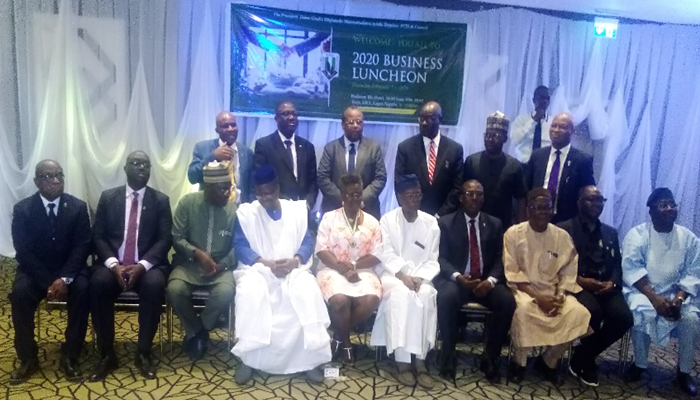Tax authorities, practitioners dialogued to strengthen nation’s taxation system
An appeal has gone tax practitioners and tax payers to be patient with the present tax administrative system as efforts were underway by the Federal Inland Revenue Service (FIRS) to fully automate the taxation system for efficient and easy tax administration practice in the country.
The Tax Controller, Agidingbi Large Tax Office, FIRS, Mr Olatunji Sosimi, who made the appeal at the 2020 Business Luncheon organised by the Chartered Institute of Taxation of Nigeria (CITN) on Thursday in Lagos, said that FIRS was investing in a new tax electronic automated system for Nigeria.
According to him, automation provides higher efficiency in tax administration as well as new tools for improving and, to some extent, simplifying tax administration.
“The objective of taxation system automation “is to replace cumbersome manual bureaucratic service systems, with collaborative, efficient, process-driven and secure on line delivery systems.
“The automation will address every challenges encountered in the system which emanate from Tax Clearance Certificate (TCC), Filling, receipting, tax payment, stamp duty and registration, while FIRS work out modalities to improve tax compliance,” Sosimi said.
He explained that FIRS will engage more in enlightenment and awareness campaign programmes to educate the taxpayers on taxation principles.
He, therefore, urged everyone to contribute in providing ideas to strengthen the taxation system, saying that all issues raised from the 2020 Finance Act will be considered in the amendment of the next Finance Bill by 2021.
The Vice President of CITN, Mr Adesina Adedayo, said the objective of the business luncheon was to engage tax authorities, practitioners, players and payers primarily to know their challenges regarding the tax administration system.
Adedayo said, “in the course of knowing their challenges, we will equally look at the Finance Act to see what things we will take back to the government having engaged, instead us sitting and imagining what the challenges are.
“We want have an interactive session that shows that this is what tax practitioners told us they found difficult as far as government policies relating to taxation are concerned and as far as the laws guiding taxation are concerned. So, we want have an indoor experience by engaging the tax practitioners.
“And with the coming of the Finance Act on board, there is need for continuous and consistent engagement with tax players.
“The Act has been established, the implementation has started and in the course of the implementation there is bound to be challenges relating to how it will be implemented; misinterpretation, misunderstanding, all these will come up. So, as an Institute, we owe it a duty to be engaging with tax players on regular basis,” Adedayo said.
Earlier, President of CITN, Gladys Simplice, appreciated the participants and urged them to speaks out on the areas government policies or the Finance Act is affecting their operation.
Simplice assured commitment of the Institute to relay every relevant opinion and feedbacks from the business luncheon to the Federal Government for consideration in subsequent amendment of the Finance Act.
Also speaking, the Secretary, Joint Tax Board (JTB), Mr Muhamad Abubakar, said the Board was working to ensure every taxpayer and corporate entities would be issued the Tax Identification Number (TIN) within the next two months.
According to him, JTB is collaborating with the Central Bank of Nigeria in order leverage on the data from BVN, by way of uploading individual’s BVN information into the JTB platform.
“What this means is that we will have over 40 million individuals who are already captured in the BVN into the taxplatform. And been that BVN has the biometrics of individuals, the JTB will leverage on the individual’s BVN information to produce the taxpayers identification number in bulk and send it out in bulk to the various mobile numbers of the individual owners,” Abubakar said.
Also, a member of CITN, Mr Kola Hamzat, emphasised the need for more involvement and participation of CITN in decisions and formulation of policies relating to taxation system of the country.
Hamzat said the Institute supposed to be meeting with the President of the country on regular basis over discussions on the Finance bill before its formulation, passage and implementation.
According him, it may not economically beneficial to be reviewing the Finance Act on yearly basis.
“Reviewing the Finance Act on yearly basis is very cumbersome considering the protocols in our government administration.
“Since 80% of the Finance Act is tax related, much may not be achieved in reviewing it on annual basis. The annual review will affect many businesses; it will amount to a lot of frustrations on business operators and companies and it will make multinational companies and foreign investors to move away from Nigeria to invest in others climes,” Hamzat said.




